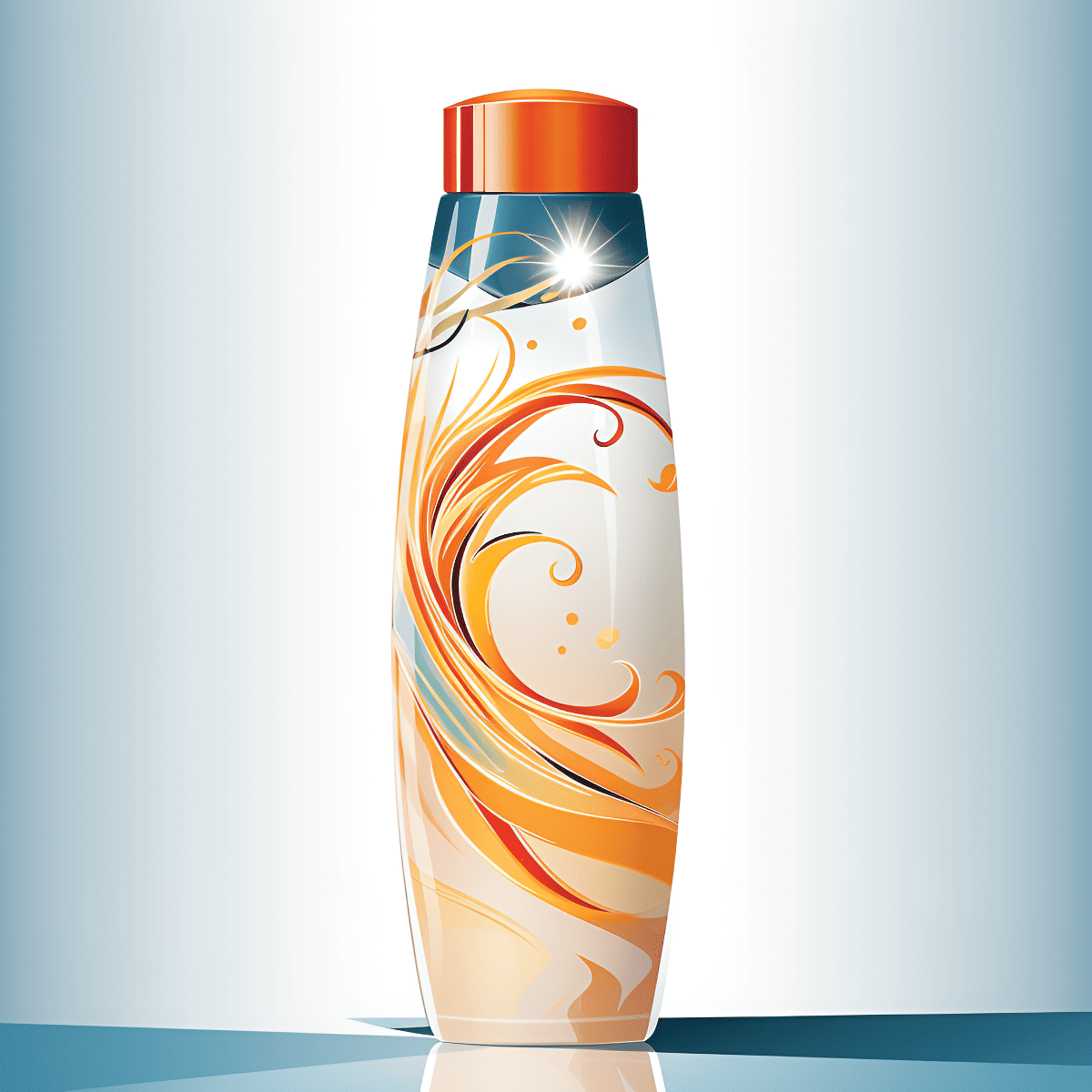You've come across a celebrity's endorsement for a product, political candidate, or even a scientific idea. The appeal is palpable. But can you trust this endorsement just because a famous person says so?
An Appeal to Celebrity Fallacy occurs when someone accepts or promotes a claim primarily based on the endorsement of a celebrity, rather than on solid evidence or logical reasoning.
This article will take you through the psychological lure of the appeal to celebrity status, provide historical and modern examples, and offer you effective tools to counteract it.
What is an Appeal to Celebrity Fallacy?

Imagine you're scrolling through social media and you see your favorite celebrity endorsing a brand-new diet plan. You think, "If they're doing it, it must be good!" Hold on a second. This is a classic example of an appeal to celebrity fallacy.
Fallacies are logical errors, usually in arguments, that people make which lead to inconsistent reasoning.
Simply put, it's the flawed belief that a famous person's opinion carries more weight or is more valid than others. In reality, celebrities may not be experts on the subject they're talking about.
So, why does this happen? Human psychology plays a big role. We often idolize celebrities and put them on pedestals. As a result, we're more likely to believe what they say without questioning it. It's easy to forget that celebrities are humans too; they can be wrong or misinformed.
Beware of blindly following the crowd. Being popular or famous doesn't make someone an authority on a subject. In the academic world, this fallacy is a no-go. It undermines the principles of evidence-based reasoning. If you're striving for a strong argument or a well-informed opinion, it's essential to rely on credible sources, not just star power.
Other Names for This Fallacy
- Argument from Celebrity
- Celebrity Endorsement Fallacy
- Appeal to Authority (a broader category that sometimes includes celebrities)
Similar Logical Fallacies
- Ad Hominem: Attacking the person instead of the argument
- Straw Man: Misrepresenting someone's argument to make it easier to attack
- Slippery Slope: Arguing that a specific action will trigger a chain of events leading to an undesirable outcome
- False Dichotomy: Presenting only two options when more exist
- Bandwagon Fallacy: Believing something is true because many other people believe it
The term "appeal to celebrity fallacy" doesn't have a long history compared to other logical fallacies like "ad hominem" or "straw man." However, it has gained more attention in recent years due to the rise of social media and influencer culture.
Celebrities now have direct channels to fans, amplifying their influence and, consequently, the impact of this particular logical fallacy. It's a modern spin on the age-old appeal to authority, where trust is placed in someone perceived to have power or expertise.
27 Examples
1) Skin Care Products

"Try this face cream because famous actress Emily Smith swears by it."
This is an appeal to celebrity fallacy because the credibility of the skincare product is being linked to the endorsement of actress Emily Smith. There's no mention of scientific evidence or dermatologist recommendations that support the product's effectiveness. Emily Smith might have great skin, but that doesn't prove that the face cream is the reason for it.
2) Fitness Programs
"Enroll in this fitness program because sports icon David James says it's the best."
This is another instance of the fallacy because the argument leans on the endorsement of David James, a sports celebrity. His prowess in sports doesn't necessarily make him an expert on fitness programs suitable for the general public. What works for him may not work for everyone else.
3) Political Endorsements
"Vote for Candidate A because beloved singer Sarah Melody endorsed them."
This example shows that even political opinions can be subject to the appeal to celebrity fallacy. Sarah Melody might be a great singer, but her artistic abilities don't make her a political expert. Using her endorsement as the sole reason to vote for a candidate is not a sound argument.
4) Dietary Supplements

"Use this dietary supplement because TV host Mark Allen said it changed his life."
Here, the effectiveness of the dietary supplement is credited to an endorsement from Mark Allen, a television host. While Mark Allen might be an engaging personality, his word alone doesn't provide any evidence about the supplement's safety or efficacy.
5) Self-help Books
"Read this self-help book because tech billionaire Laura Stevens recommends it."
In this example, the quality and usefulness of a self-help book are being judged solely by Laura Stevens' endorsement. Just because she's a tech billionaire doesn't mean she's an expert on what self-help strategies will work for everyone.
6) Movie Recommendations
"Watch this movie because action star Tim Clark said it's the best film this year."
Recommendations from celebrities and actors like Tim Clark may sway public opinion but should not be taken as a factual assessment of the film's quality. His expertise in acting doesn't necessarily make him an authority on film critiques.
7) Fashion Choices

"Buy these sneakers because top model Anna Johnson wears them."
Here, the argument is that if a famous model like Anna Johnson wears these sneakers, they must be good. However, her wearing them does not provide any real evidence of the sneakers' quality or comfort.
8) Investment Opportunities
"Invest in this start-up because entrepreneur legend Robert King did."
The fallacy is evident here because Robert King's success in his ventures doesn't automatically guarantee the success of this particular start-up. Investments always carry risks, and one person's decision to invest isn't sufficient evidence of a good opportunity.
9) Real Estate Locations
"Buy property in this area because celebrity chef Alice Waters just bought a house here."
Alice Waters might be a culinary genius, but her expertise doesn't extend to real estate investment. Using her purchase as your sole reason to buy property in the area would be falling for the fallacy.
10) Educational Courses
"Sign up for this online course because influencer Katie Bell completed it and loved it."
Here, the appeal to celebrity fallacy is in play because Katie Bell's experience with the course is being used as the only rationale for the conclusion about its quality. However, her completion of the course does not automatically imply that it's well-structured or informative.
11) Eco-Friendly Products
"Switch to this eco-friendly laundry detergent because environmental activist and actor Dan Green uses it."
While Dan Green may be known for his environmental activism, using his words or his endorsement as the sole reason to switch laundry detergents doesn't address whether the product is genuinely eco-friendly or effective.
12) Organic Foods
"Start buying this brand of organic food because health guru Emily Parker eats it."
Here, the endorsement of a 'health guru' like Emily Parker is being used as a reason to buy a specific brand of organic food. However, her endorsement doesn't stand as evidence for the brand's quality or health benefits.
13) Cooking Appliances
"Get this blender because celebrity chef John Cook uses it on his cooking show."
John Cook might be a culinary expert, but his endorsement of the blender does not guarantee that it's the best choice for your kitchen needs. It's essential to look at product reviews and do your own research.
14) Cleaning Products
"Use this surface cleaner because homemaking maven Lisa Green promotes it."
Even though Lisa Green might have a reputation for being a homemaking expert, using her endorsement as the only reason to buy a cleaning product doesn't make it a good choice. Independent reviews and research should also be considered.
15) Vacation Spots
"Visit this island getaway because pop star Maria Love had her honeymoon there."
Maria Love choosing to have her honeymoon at a specific island does not provide any substantial reason for why it would be the ideal vacation spot for you.
16) Pet Care
"Buy this dog food because celebrity vet Dr. Jane Smith recommends it."
The appeal to celebrity fallacy is evident here. Just because a well-known veterinarian endorses a brand of dog food, it doesn't mean it's the best option for your pet's specific needs.
17) Musical Instruments
"Learn to play this brand of guitar because rock legend Paul Strings plays one."
This is another example where the expertise of a celebrity in one field—playing guitar—is used to endorse a product. However, what works for Paul Strings may not necessarily work for beginner or intermediate musicians.
18) Software Tools
"Use this editing software because famous YouTuber Chris Edit uses it for his videos."
Chris Edit might create great content, but that doesn't mean his choice of editing software will suit everyone's needs. User experience, features, and pricing should also be considered.
19) Dental Products
"Switch to this brand of toothpaste because Hollywood actress Tina Smile is in the commercials."
Here, the celebrity endorsement from Tina Smile doesn't offer any evidence about the toothpaste's effectiveness in oral care. Celebrity smiles may be beautiful, but they're not a substitute for dental research.
20) Home Furniture
"Buy this brand of mattresses because celebrity couple Emily and Tim sleep on one."
A celebrity endorsement might make a mattress seem more appealing, but it generally doesn't provide any information on comfort, durability, or value for money.
21) Cars
"Consider this model of electric car because tech innovator Steve Fast drives one."
Just because a tech innovator chooses a particular car doesn't mean it's the best electric vehicle on the market for you. Car purchases should be based on multiple factors like performance, safety, and budget.
22) Insurance Policies
"Get your insurance from this company because basketball star Mark Dunk is their spokesperson."
Mark Dunk being a spokesperson for an insurance company does not make it a reliable or cost-effective choice for insurance. Thorough research and comparison are key.
23) Childcare Products
"Use this brand of baby formula because celebrity mom Lisa Caring says it's the best."
Lisa Caring's endorsement doesn't prove the baby formula's nutritional value or safety. Pediatric advice should be the cornerstone of such decisions.
24) Cell Phone Brands
"Upgrade to this smartphone because movie star Karen Screen uses one."
Karen Screen using a particular brand of smartphone does not provide substantial evidence that it's the best option available.
25) Cosmetics
"Wear this brand of lipstick because supermodel Cindy Gloss endorses it."
Cindy Gloss might have great taste, but her endorsement doesn't provide any information on the lipstick's quality, durability, or safety.
26) Energy Drinks
"Drink this brand of energy drink because action sports star Bob Jump drinks it."
Just because an action sports star endorses an energy drink doesn't mean it's healthy or effective. Research and nutritional information are key.
27) Social Media Platforms
"Join this new social media platform because pop culture icon Andy Trendy is on it."
The appeal to celebrity fallacy is clear here. Andy Trendy's presence doesn't necessarily make the platform worth joining. Privacy, usability, and the community are other factors to consider.
The Psychological Mechanisms Behind It
Why do people fall for the appeal to celebrity fallacy? The answer lies in how our brains are wired. Human beings have a natural tendency to look up to authority figures or individuals with high social status.
It's almost like a mental shortcut. Instead of evaluating all the pros and cons, people often think, "If this celebrity believes it, it must be true." This reliance on authority figures or celebrities stems from a cognitive bias known as argumentum ad verecundiam—an appeal to authority.
Another angle to consider is the impact of celebrity culture and fandom. Celebrities often hold a certain mystique; their lives appear extraordinary, and many people aspire to emulate them. This emotional connection or admiration can cloud rational judgment.
When a celebrity endorses a product, service, or idea, people may subconsciously align their choices with the celebrity's, thinking it brings them closer to a lifestyle they desire. The lines between logical reasoning and emotional impulse can get blurred, making it easier to commit this fallacy.
The Impact of Appeal to Authority
Falling for the appeal to celebrity fallacy can have various consequences. For one, it can lead to poor decision-making. Whether it's choosing ineffective skincare products or voting for a political candidate who doesn't align with your values, the outcomes can be disappointing.
The fallacy perpetuates a cycle of misinformation, as people share their ill-informed opinions based on celebrity endorsements, further spreading myths as truth or half-truths.
Additionally, this type of fallacy can contribute to the erosion of critical thinking skills. When individuals make choices based solely on celebrity opinions, they're not engaging with the subject matter on a deeper level. They're not assessing evidence, considering alternatives, or questioning the reasoning behind their choices, which can dull their ability to think critically over time.
How to Identify and Counter It
Recognizing the appeal to celebrity fallacy is the first step toward countering it. Always ask yourself, "Is the celebrity an expert in this field?" More often than not, the answer will be no. Celebrities are usually not certified authorities on the subjects they endorse. Therefore, their opinions shouldn't hold more weight than those of experts in the relevant fields.
To counter the appeal to celebrity fallacy, seek out credible sources. If a celebrity is endorsing a skincare product, look for dermatologist reviews or scientific studies supporting the product's claims.
If they endorse a political candidate, delve into the candidate's policies, track record, and qualifications. By doing your own research and relying on credible sources, you can make well-informed decisions that aren't swayed by the allure of celebrity endorsements.
